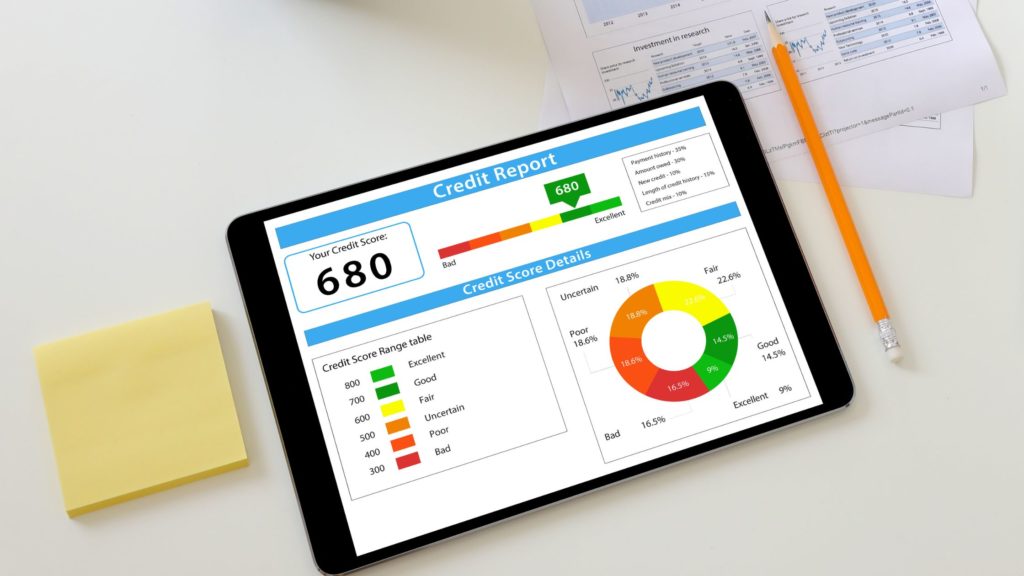Overview of Credit Score | Why is Good Credit Score Important Singapore
Credit Cards
 by Priyadarshini
29 July 2022
by Priyadarshini
29 July 2022
Are you looking to take up a loan? Do you know that you have to get your loan approved first, and only then you can get your hands on the money? To get your loan approved quickly you must have a good credit score. In this blog, we give you an overview of credit score in Singapore.
Overview of Credit Score in Singapore
How is your credit score determined?
More importantly, how do you ensure that it is in the best possible condition? Knowing your credit score is essential for financial health. Most Singaporeans will have to take out a bank loan at some point in their lives. A home loan, car loan, business loan, or education loan are the most common examples. Such loans are easy to qualify for with a credit risk grade of AA. Personal installment loans can also help when a large sum of money is needed in an emergency.
Those who are unable to maintain a good credit score are frequently denied access to these essential financial products. Here’s how to raise your credit risk score to AA, the highest possible credit grade.
Why is a good credit score important in Singapore?
Banks will use your credit score to determine your loan quantum, or how much they are willing to lend you, for most loans above $500. Banks in Singapore, unlike in other countries, rarely vary interest rates based on your credit grade. If you have poor credit, you will be given a smaller loan or rejected entirely.
This is why it is critical to maintaining a healthy credit score. The worse it is, the less you can borrow for a car, a house, a college education, or to start a business. You get the idea. When you apply for a job, a prospective employer may request to see your credit score. Some employers (especially in the finance industry) will reject applicants with poor credit.
Always pay back your loans on time
Your credit score would have dropped by the time you received the second or third letter reminding you of the late payment. This will occur regardless of whether the bank waives late payment penalties. Always repay at least the minimum amount on credit cards before the billing cycle ends. To save money on interest payments, we recommend that credit card bills be paid in full each month.
If you suspect you will miss payments on a loan, such as a mortgage or a personal installment loan, notify your bank as soon as possible. Speak with a credit counselor instead. It is possible that the bank will devise a repayment plan (debt restructuring) that will cause less harm to your credit rating.
Never, ever default on a loan
A loan default will remain on your credit report indefinitely. A single major default can make obtaining a credit card, line of credit, or home loan impossible. If you are unable to make your payments, seek credit counselling and have your debt restructured. While it will lower your credit score, it is preferable to default. Furthermore, if you have the money but simply refuse to repay it, you will face legal action.
Make short-term loan payments to repair your credit
If you have a poor credit rating, the simplest way to improve it is to repay any short-term or small loans ($1,000 or less). Once the bureau sees that you are making repayments on time and in full, this will go a long way toward repairing your damaged credit.
Start doing this a year or two before applying for major loans, such as a home loan, if you currently have a credit grade of B or lower. This could result in you receiving the coveted AA rating by the time you submit your application.
Avoid making multiple loan inquiries in rapid succession
If you apply for four or five loans in a short period of time (for example, one month), you may be labelled as ‘credit hungry.’ This is typical behaviour for someone in financial distress, such as someone who has recently been laid off or is in debt.
Limit the number of credit facilities that are open
Avoid having more than four to five credit facilities in general (personal lines of credit, credit cards, personal loans, and so forth). In any case, having six or seven credit cards or credit lines is not recommended. The various billing cycles are likely to confuse you and cause you to miss payments.
Always close credit cards that you no longer use to avoid paying the annual fee. There is little reason to have more than one personal line of credit. If you find a credit line with a lower interest rate, close your current one and open the new one.
Insurance | Credit Cards | Loans | Banking |




